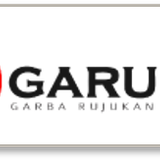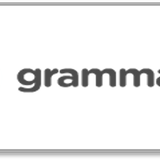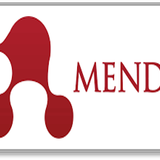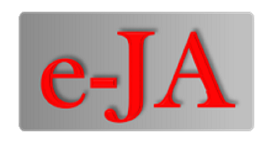Examining Linkage Audit Quality Factors Intervening By Time Budget Pressure
DOI:
https://doi.org/10.24912/ja.v26i1.819Abstract
Public accountants are independent auditors who provide services to the general public, especially in auditing financial statements made by their clients. The task of a public accountant is to examine and give an opinion on the fairness of the financial statements of a business entity based on predetermined standards. The public accounting profession is responsible for increasing the reliability of the company's financial statements. The public can obtain reliable financial statement information as a basis for decision-making. The research objective is to answer the phenomenon of the variable, namely the Effect of Auditor Competence, Audit Complexity, Auditor Independence on Audit Quality. The research method uses Multiple Regression Analysis. From the research results obtained the following results Auditor Independence has the most dominant effect on Audit Quality, Audit Complexity also has a significant but negative impact on Audit Quality. Meanwhile, Auditor Competence also significantly impacts Audit Quality.
References
Ab Wahid, R., and Grigg, N. P. (2020). A draft framework for quality management system auditor education: findings from the initial stage of a Delphi study. The TQM Journal.
Agusti, R., dan Pertiwi, N. P. (2013). Pengaruh Kompetensi, Independensi dan Profesionalisme Terhadap Kualitas Audit (Studi Empiris Pada Kantor Akuntan Publik Se Sumatera). Jurnal Ekonomi, 21(03).
Agyei-Mensah, B. K. (2019). The effect of audit committee effectiveness and audit quality on corporate voluntary disclosure quality. African Journal of Economic and Management Studies.
Ahmad, Z., and Taylor, D. (2009). Commitment to independence by internal auditors: the effects of role ambiguity and role conflict. Managerial Auditing Journal.
Aida, N. (2021). Work Experience, Obedience Pressure and Task Complexity on Audit Judgment. Golden Ratio of Auditing Research, 1(2), 61–69.
Alzeban, A. (2019). The impact of audit committee, CEO, and external auditor quality on the quality of financial reporting. Corporate Governance: The International Journal of Business in Society.
Andreev, P., Heart, T., Maoz, H., and Pliskin, N. (2009). Validating formative partial least squares (PLS) models: methodological review and empirical illustration.
Athavale, M., Guo, Z., Meng, Y., and Zhang, T. (2022). Diversity of signing auditors and audit quality: Evidence from capital market in China. International Review of Economics & Finance.
Aziz, A., Muda, I., and Situmeang, C. (2021). Effect of Auditor Ethics, Complexity, Audit Fees, Auditor Motivation, and Time Budget Pressure on Audit Quality for All Members of the Indonesian Institute of Certified Public Accountants. Budapest International Research and Critics Institute (BIRCI-Journal): Humanities and Social Sciences, 4(4).
Botha, E., Helminen, M., Kaunonen, M., Lubbe, W., and Joronen, K. (2020). Mothers’ parenting self-efficacy, satisfaction and perceptions of their infants during the first days postpartum. Midwifery, 88, 102760. https://doi.org/https://doi.org/10.1016/j.midw.2020.102760
Broberg, P., Tagesson, T., Argento, D., Gyllengahm, N., and Mårtensson, O. (2017). Explaining the influence of time budget pressure on audit quality in Sweden. Journal of Management & Governance, 21(2), 331–350.
Carrera, N., and Van Der Kolk, B. (2021). Auditor ethics: do experience and gender influence auditors’ moral awareness? Managerial Auditing Journal.
Cipriani, G. (2010). The EU budget: responsibility without accountability?
Daniels, B. W., and Booker, Q. (2011). The effects of audit firm rotation on perceived auditor independence and audit quality. Research in Accounting Regulation, 23(1), 78–82.
Dewayanto, T. (2011). Analisis faktor-faktor yang mempengaruhi penerimaan opini audit going concern pada perusahaan manufaktur yang terdaftar di bursa efek indonesia. Fokus Ekonomi: Jurnal Ilmiah Ekonomi, 6(1).
do Nascimento, J. C. H. B., and da Silva Macedo, M. A. (2016). Structural Equation Models using Partial Least Squares: an Example of the Application of SmartPLS® in Accounting Research. Revista de Educação e Pesquisa Em Contabilidade, 10(3).
Durocher, S., and Fortin, A. (2021). Financial statement users’ institutional logic. Journal of Accounting and Public Policy, 40(2), 106819.
Endri, E. (2020). The effect of task complexity, independence and competence on the quality of audit results with auditor integrity as a moderating variable. International Journal of Innovation, Creativity and Change, 12(12).
Fassott, G., Henseler, J., and Coelho, P. S. (2016). Testing moderating effects in PLS path models with composite variables. Industrial Management & Data Systems.
Furiady, O., and Kurnia, R. (2015). The effect of work experiences, competency, motivation, accountability and objectivity towards audit quality. Procedia-Social and Behavioral Sciences, 211, 328–335.
Imen, F., and Anis, J. (2020). The moderating role of audit quality on the relationship between auditor reporting and earnings management: empirical evidence from Tunisia. EuroMed Journal of Business.
Jaya, T. E., and Irene, C. (2016). Skepticism, Time Limitation of Audit, Ethics of Professional Accountant and Audit Quality (Case Study in Jakarta, Indonesia). Review of Integrative Business and Economics Research, 5(3), 173–182.
Kertarajasa, A. Y., Marwa, T., and Wahyudi, T. (2019). The effect of competence, experience, independence, due professional care, and auditor integrity on audit quality with auditor ethics as moderating variable.
Li, Y. (2010). The case analysis of the scandal of Enron. International Journal of Business and Management, 5(10), 37.
Liahmad, L., Rusnindita, K., and Utami, Y. P. (2020). Effect of Competence, Independence, and Auditor Experience of Audit Quality (Study of Public Accountants in Malang City Public Accountant Office). International Joint Conference on Science and Technology, 2(1), 152–159.
Liu, C. L., and Lai, S. M. (2012). Organizational complexity and auditor quality. Corporate Governance: An International Review, 20(4), 352–368.
Liu, C., and Xu, C. (2021). The effect of audit engagement partner professional experience on audit quality and audit fees: early evidence from Form AP disclosure. Asian Review of Accounting.
Moroney, R., and Trotman, K. T. (2016). Differences in auditors’ materiality assessments when auditing financial statements and sustainability reports. Contemporary Accounting Research, 33(2), 551–575.
Natsir, M., Pattawe, A., Haris, N., and Zahra, F. (2021). The effects of work experience, ethical profession, and auditor independence on auditing performance of supervisory agency in central sulawesi Indonesia. Academy of Entrepreneurship Journal, 27(4), 1–9.
Putri, A. P., Nabila, N., Augustin, V., and Fellia, F. (2021). Audit Tenure, Auditor Experience, Independency, And Task Complexity On Audit Judgement. Jurnal Riset Akuntansi Kontemporer, 13(1), 7–12.
Rajgopal, S., Srinivasan, S., and Zheng, X. (2021). Measuring audit quality. Review of Accounting Studies, 26(2), 559–619.
Ringle, C., Da Silva, D., and Bido, D. (2015). Structural equation modeling with the SmartPLS. Bido, D., Da Silva, D., & Ringle, C.(2014). Structural Equation Modeling with the Smartpls. Brazilian Journal Of Marketing, 13(2).
Samagaio, A., and Felício, T. (2022). The influence of the auditor’s personality in audit quality. Journal of Business Research, 141, 794–807.
Sarstedt, M., Ringle, C. M., Henseler, J., and Hair, J. F. (2014). On the emancipation of PLS-SEM: A commentary on Rigdon (2012). Long Range Planning, 47(3), 154–160.
Schmidthuber, L., Hilgers, D., and Hofmann, S. (2020). International Public Sector Accounting Standards (IPSASs): A systematic literature review and future research agenda. Financial Accountability & Management.
Setyowati, W., Kurniawan, P. C., Mardiansyah, A., Harahap, E. P., and Lutfiani, N. (2021). The Role Of Duty Complexity As A Moderation Of The Influence Auditor’s Professional Knowledge And Ethics On Audit Quality. Aptisi Transactions on Management (ATM), 5(1), 20–29.
Sofyan, A., Agusti, R., dan Marbun, A. B. (2015). Pengaruh Kompetensi, Independensi, Profesionalisme, Pengalaman Kerja dan Komitmen Organisasi Terhadap Kualitas Audit (Studi Empiris Pada Kantor Akuntan Publik Di Pekanbaru, Padang Dan Medan). Riau University.
Svanberg, J., and Öhman, P. (2013). Auditors’ time pressure: does ethical culture support audit quality? Managerial Auditing Journal.
Trotman, A. J., and Trotman, K. T. (2010). The intersection of family business and audit research: Potential opportunities. Family Business Review, 23(3), 216–229.
Usmany, P. (2021). The Influence of Self Efficacy and Effort on Auditor Performance Specific Experience as Antecedent Variables (Empirical Study on BPK-RI in Indonesia). Budapest International Research and Critics Institute (BIRCI-Journal): Humanities and Social Sciences, 4(4), 12366–12379.
Zahmatkesh, S., and Rezazadeh, J. (2017). The effect of auditor features on audit quality. Tékhne, 15(2), 79–87.
Zeng, Y., Chen, G., Li, K., Zhou, Y., Zhou, X., and Li, K. (2019). M-Skyline: Taking sunk cost and alternative recommendation in consideration for skyline query on uncertain data. Knowledge-Based Systems, 163, 204–213. https://doi.org/https://doi.org/10.1016/j.knosys.2018.08.024
Downloads
Published
How to Cite
Issue
Section
License

This work is licensed under a Creative Commons Attribution-NonCommercial-ShareAlike 4.0 International License.
This journal provides immediate open access to its content on the principle that making research freely available to the public supports a greater global exchange of knowledge.

This work is licensed under a Creative Commons Attribution-NonCommercial-ShareAlike 4.0 International License



















